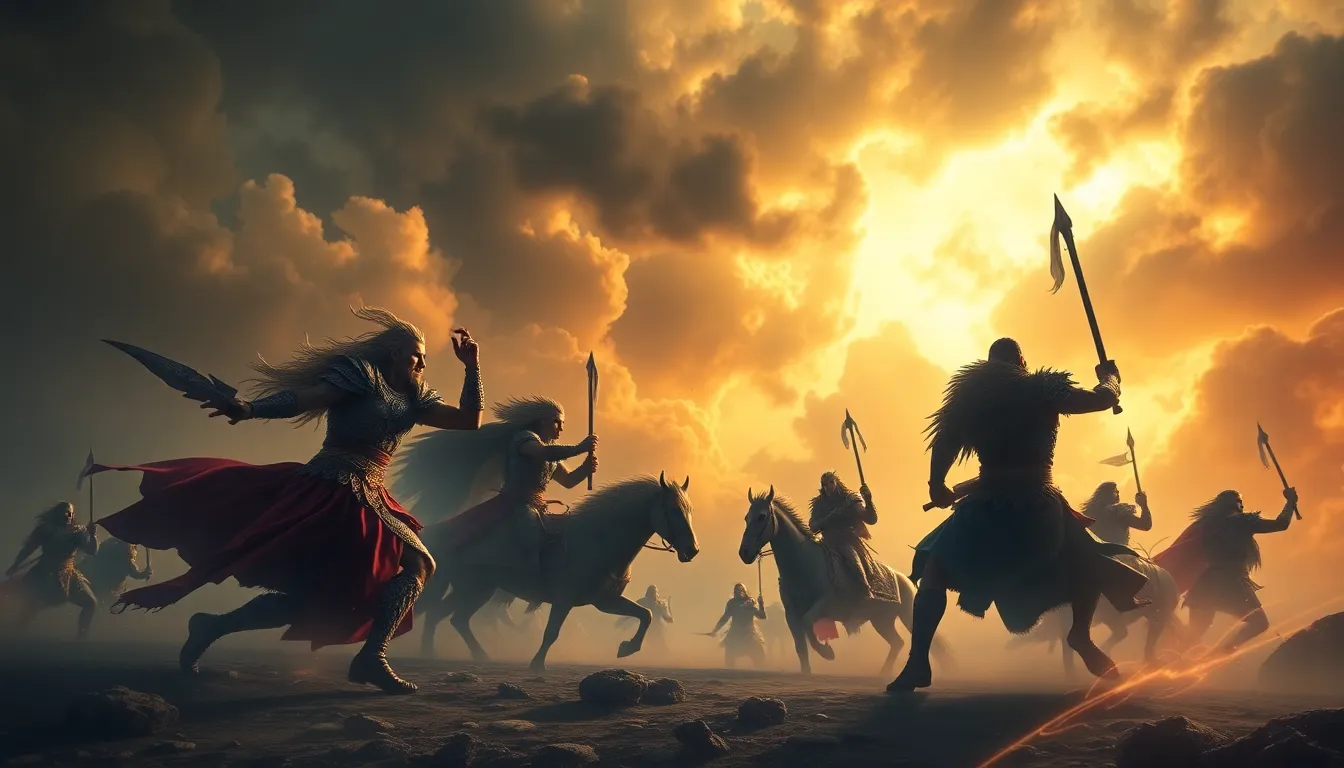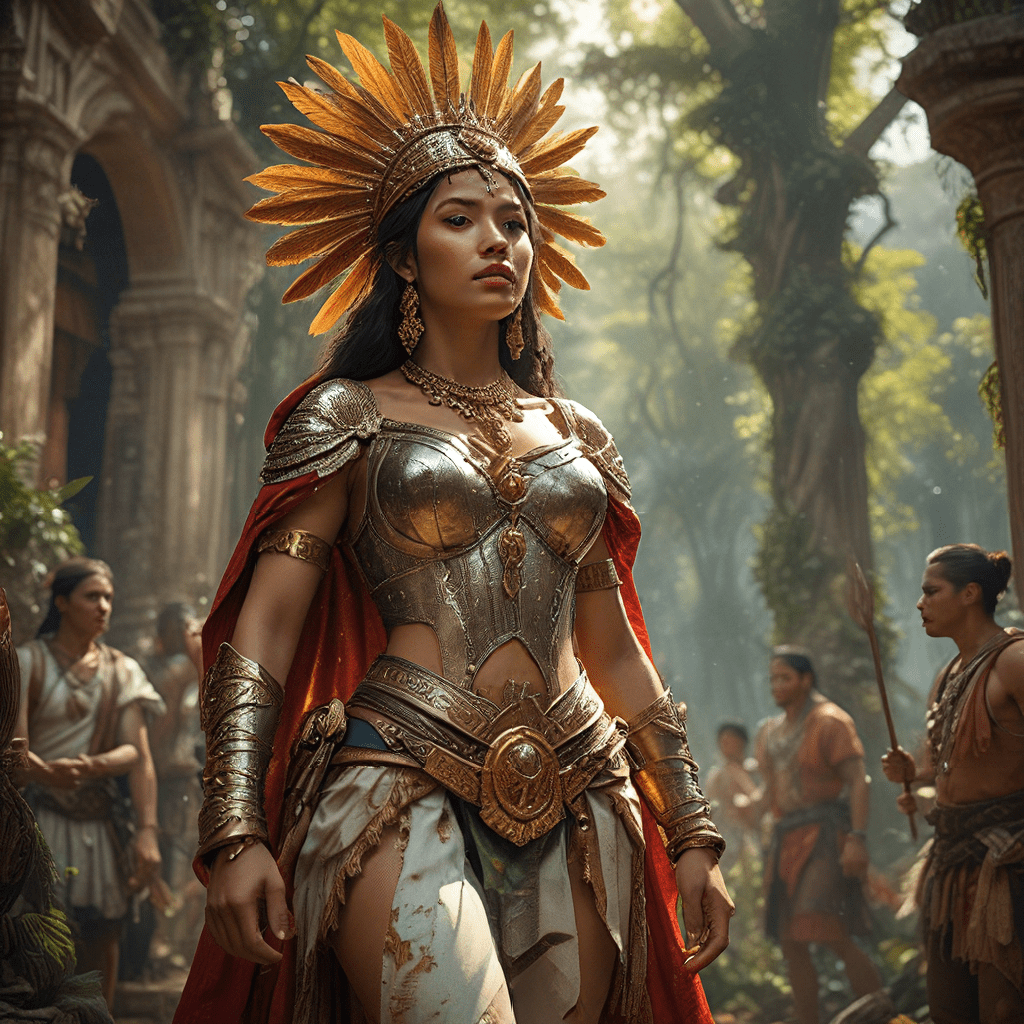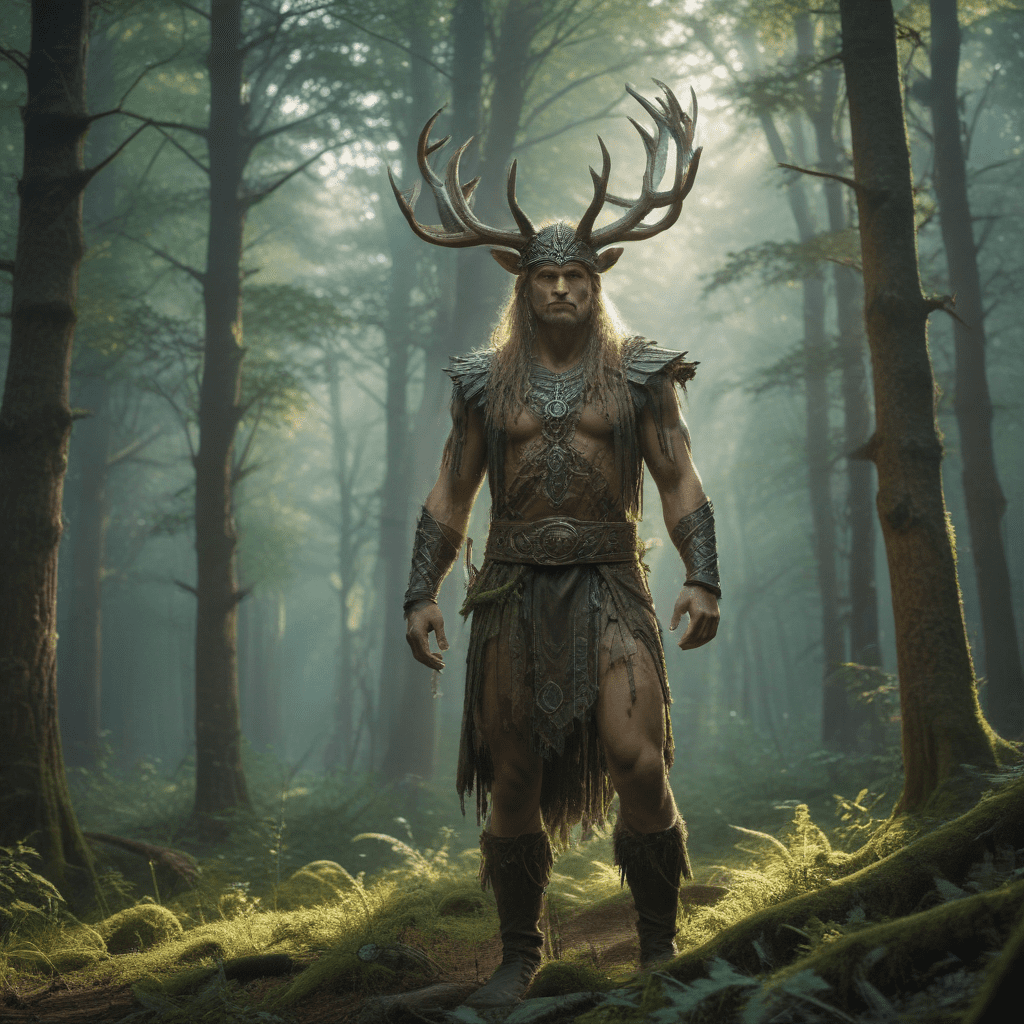Warriors of Myth: The Most Epic Battles of All Time!
Introduction: The Allure of Epic Battles in Mythology
Throughout history, mythological battles have captivated the human imagination. Defined as grand confrontations between gods, heroes, and mythical creatures, these epic clashes serve as allegories for human experiences and societal values. The cultural significance of these battles transcends mere entertainment; they reflect the fears, aspirations, and moral dilemmas of the societies that tell them.
This article aims to explore some of the most notable mythical battles, examining their origins, key figures, and the lessons they impart. From the Trojan War to the Ragnarok, each confrontation reveals something profound about the human condition and the universe we inhabit.
The Origins of Mythical Warfare: Deities and Heroes
Mythical warfare is often shaped by the divine and the epic heroes who embody the values of their cultures. Gods frequently intervene in battles, influencing outcomes and representing various facets of existence.
- Role of Gods: Gods often act as patrons or adversaries in battles, illustrating human struggles against fate and divine will.
- Legendary Warriors: Figures like Achilles and Arjuna are not just warriors but embodiments of ideals such as honor, courage, and duty.
- Reflection of Society: Myths mirror societal values and fears, such as the conflict between good and evil or the struggle for power.
The Trojan War: Love, Betrayal, and Heroism
The Trojan War stands as one of the most famous mythological conflicts, chronicled primarily in Homer’s “Iliad.” It is a tale of love, betrayal, and the heroism of its key figures.
Central to the narrative are:
- Achilles: The greatest warrior whose rage and pride lead to tragic consequences.
- Hector: The noble prince of Troy, embodying the values of honor and duty.
- Helen: The catalyst of the war, whose abduction sparks a decade-long conflict.
The Trojan War has left an indelible mark on Greek mythology and literature, influencing countless works and continuing to resonate in modern storytelling.
The Mahabharata: The Battle of Kurukshetra
The “Mahabharata,” one of the longest epic poems in the world, narrates the tale of the Battle of Kurukshetra, a conflict between two factions of the Kuru dynasty.
Key characters include:
- Arjuna: A skilled archer and one of the Pandava brothers, who faces moral dilemmas during battle.
- Krishna: Arjuna’s charioteer, who imparts wisdom and guidance, representing the divine.
- Kauravas: The opposing faction led by Duryodhana, representing ambition and moral ambiguity.
The epic explores themes of duty (dharma), morality, and the nature of war, making it a profound philosophical text in addition to a thrilling narrative.
The Clash of Titans: Greek Mythology’s Most Iconic Battles
Greek mythology is filled with legendary battles, none more famous than the Titanomachy, the war between the Titans and the Olympian gods.
Key battles and figures include:
- Titanomachy: The epic battle that established Zeus and the Olympians as the rulers of the cosmos.
- Hercules: Known for his twelve labors, Hercules also fought in various battles against monsters and gods.
These confrontations symbolize the struggle for power and the triumph of order over chaos, reflecting the ancient Greeks’ understanding of the universe.
Norse Legends: Ragnarok and the End of Days
In Norse mythology, Ragnarok represents the ultimate battle that leads to the end of the world, characterized by chaos and destruction.
Key figures involved in Ragnarok include:
- Odin: The All-Father who seeks knowledge and prepares for the coming doom.
- Thor: The god of thunder, who battles the serpent Jörmungandr during Ragnarok.
- Loki: The trickster god whose actions lead to the final conflict.
- Fenrir: The monstrous wolf destined to slay Odin.
The themes of fate, sacrifice, and renewal are deeply woven into the fabric of this myth, illustrating the cyclical nature of existence.
The Battle of the Gods: Egyptian Mythology’s Divine Conflicts
Egyptian mythology features several significant battles among gods, most notably the conflict between Set and Osiris.
Key elements include:
- Set vs. Osiris: The struggle between chaos (Set) and order (Osiris), which symbolizes the eternal conflict between good and evil.
- The Duat: The underworld plays a central role in these battles, influencing beliefs about death and the afterlife.
These myths were integral to ancient Egyptian culture, shaping their religion and worldview.
Celtic Warriors: The Mythical Conflicts of the Tuatha Dé Danann
The Tuatha Dé Danann are a group of deities in Irish mythology known for their epic battles and conflicts.
A notable battle is:
- The Second Battle of Mag Tuired: A significant conflict between the Tuatha Dé Danann and the Fomorians, showcasing themes of heroism and sacrifice.
These battles blend myth and historical tribal conflicts, reflecting the rich tapestry of Celtic culture.
The Legacy of Mythical Battles in Modern Media
Mythical battles continue to inspire contemporary literature, films, and video games, demonstrating their enduring appeal.
Popular adaptations include:
- 300: A stylized retelling of the Battle of Thermopylae.
- Clash of the Titans: A reimagining of Greek myths featuring epic confrontations.
These modern interpretations not only entertain but also rekindle interest in ancient stories, allowing new generations to explore the timeless themes of heroism, conflict, and morality.



